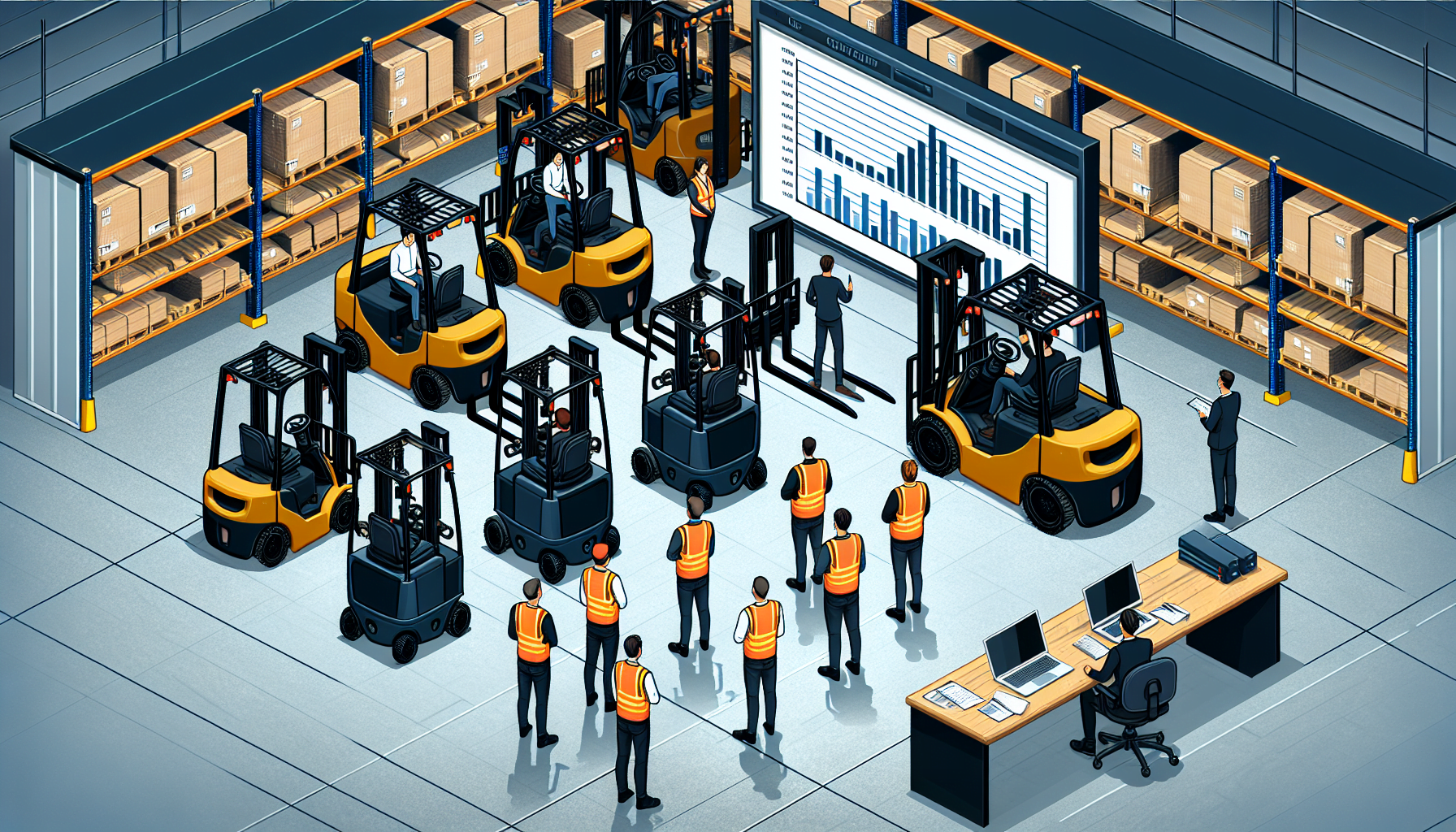Proper forklift fleet management and training is of utmost importance in the world of warehouse operations. Not only does it ensure the safety of workers, but it also has a significant financial impact on a company’s bottom line. In this article, we will explore the financial implications of investing in proper forklift fleet training and the benefits it brings to warehouse operations.
The Cost of Inadequate Forklift Fleet Training
Without proper training, forklift operators may not be equipped with the necessary skills and knowledge to operate the equipment safely and efficiently. This can lead to accidents, damage to goods and equipment, and even injuries or fatalities. The financial consequences of such incidents can be substantial.
Accidents involving forklifts not only incur costs related to repairs or replacements of damaged goods and equipment but also result in costly downtime. When a forklift is out of commission due to repairs, it hampers the productivity of the entire warehouse, leading to delays in shipments and reduced customer satisfaction. Additionally, businesses may also face legal liabilities and worker’s compensation claims, further adding to the financial burden.
An enforceable forklift fleet training program, on the other hand, significantly reduces the risk of accidents and associated costs. By ensuring that operators are properly trained, businesses can minimize accidents, damage, and downtime, ultimately saving both time and money.
The Benefits of Proper Forklift Fleet Training
Investing in proper forklift fleet training has several tangible benefits for businesses:
- Enhanced safety: By providing comprehensive training, businesses can ensure that their forklift operators have a thorough understanding of safety protocols and best practices. This reduces the likelihood of accidents and injuries in the workplace.
- Increased productivity: Well-trained forklift operators are more efficient in their work, leading to increased productivity within the warehouse. They can handle materials and goods swiftly and accurately, reducing time wastage and improving overall operational efficiency.
- Reduced maintenance costs: Proper training helps operators understand the equipment better, enabling them to use it correctly and minimize wear and tear. This, in turn, reduces the frequency and costs associated with maintenance and repairs.
- Improved inventory management: Forklift operators who are trained in efficient inventory management techniques contribute to better organization and tracking of goods in the warehouse. This leads to a reduction in inventory discrepancies and associated costs.
HCO Innovations, a leading provider of warehouse optimization solutions, offers comprehensive forklift fleet management services that include operator training. Their program ensures that forklift operators receive the necessary training and certifications to operate equipment safely and efficiently.
HCO Innovations understands the financial impact of inadequate forklift fleet training and aims to help businesses optimize their operations while minimizing risks. Their expertise in warehouse optimization allows companies to enhance safety, productivity, efficiency, and cost-effectiveness within their warehouse operations.
Invest in Proper Forklift Fleet Training
In conclusion, the financial impact of proper forklift fleet training cannot be overstated. By investing in training programs provided by reputable companies like HCO Innovations, businesses can improve safety, productivity, and efficiency, all while saving costs in the long run. It is a smart investment that benefits both the company’s bottom line and the well-being of its employees.

